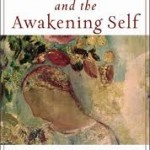 I’m sure I’ll see Noah soon enough. Maybe when it comes out on video.
I’m sure I’ll see Noah soon enough. Maybe when it comes out on video.
I’m sure I’ll like parts of it and not like other parts.
And I am absolutely sure it will get the biblical very, very wrong.
And I don’t care.
- Didn’t we just go through all this?
- I feel I should be getting worked up about other things.
- I am growing weary of “I strongly disagree with you” being equated with the “Gospel is at stake” culture-war-dive-off-a-cliff vibe.
- Any depiction of the typically brief, “gapped,” laconic episodes of the Old Testament absolutely has to take serious liberties in adding to and reinterpreting what is written.
- For generations of children’s Sunday School classes and Vacation Bible Schools, conservative Christians have already done a fine job of getting the Noah story wrong, so to get upset now strikes me as a stunning lack of self-awareness.
If I may elaborate on that last point.
In our bedroom, we have hanging–actually, used to have hanging–a wood carving of the ark scene, complete with cute animals and a rainbow. The caption, which reflects perfectly how the flood story is often spun, reads, “God’s love never fails.”
I’m completely down with that idea, but I certainly don’t get that from the flood story.
What I do get, and which I suggest as an alternate caption, is, “God’s love never fails (for Noah and his family).”
Or, “We get no further than the 6th chapter of the Bible, and God has already had it with humanity enough to drown every living thing on earth and start over, which, we realize might strike some of us as a bit over the top.”
 Or better: “Ancient Israelites, living in a world of already very ancient stories of a catastrophic deluge (likely occurring around 2900 BCE) that left ancient peoples scrambling for answers about why the gods would do such a thing, adapted that story to say something of theological significance for them by way of contrast with these other ancient stories. This is not to suggest, however, that the entire earth was actually, geologically, in space and time covered with water, nor does it even suggest that this story give us permanent, let alone primary, information about of God’s ‘character.’ But it does suggest that this story had some significant religious value for its writers, and we ought to try to understand what that might be rather than capturing the story in a misleading slogan that will set up our children for a faith crisis once they get old enough to read the story for themselves or watch The History Channel and learn about the other ancient flood stories or NOVA and learn about geology and the age of the earth.”
Or better: “Ancient Israelites, living in a world of already very ancient stories of a catastrophic deluge (likely occurring around 2900 BCE) that left ancient peoples scrambling for answers about why the gods would do such a thing, adapted that story to say something of theological significance for them by way of contrast with these other ancient stories. This is not to suggest, however, that the entire earth was actually, geologically, in space and time covered with water, nor does it even suggest that this story give us permanent, let alone primary, information about of God’s ‘character.’ But it does suggest that this story had some significant religious value for its writers, and we ought to try to understand what that might be rather than capturing the story in a misleading slogan that will set up our children for a faith crisis once they get old enough to read the story for themselves or watch The History Channel and learn about the other ancient flood stories or NOVA and learn about geology and the age of the earth.”
But that last one wouldn’t fit on the wood carving. It wouldn’t sell very well to the demographic, either.
OK, I’m not painting the entire picture here.
The story of Noah has more theological substance than what any of my alternate captions suggests–although the last caption is, I think, the beginning of serious and rewarding theological reflection.
I’m just saying that whatever the movie does with the story–even if it gets it 100% wrong and winds up being utter nonsense–those who “take the Bible seriously” often don’t do much better.
And at any rate, the unwashed masses who see this movie are not going to be “confused” about God from seeing it. It’s a movie. They are likely going to forget it by the time they unlock the car doors. Getting the Noah story wrong isn’t a lost opportunity to be that crucial magical experience that maneuvers people into church.
Actually, getting the Noah story right might be more confusing for unchurched or skeptical people.
“Thanks for coming to our Bible study. How’d you like the story of Noah and the flood?”
“OK, I guess.”
“What to come to church now?
“Absolutely not.”
Now that I think of it, I’d rather the movie take serious liberties with the biblical story. I might have less explaining to do.
The Gospel isn’t at stake when a movie comes out. It may be more at stake when people watch Christians get frantic, as if the Christian faith is such a fragile thing that a movie threatens its integrity. If the Gospel is at stake, it may be more because of how some Christians react.















